While you are spending the first trimester pregnant in your life, you have every reason to exercise extreme caution and consider the side effects of any fruit like kiwi that you consume. Way to go! You are responsible for the well-being of an infant who is still growing. The kiwi fruit, which is also known as the Chinese gooseberry due to its place of origin in China, is loaded with a variety of essential vitamins, minerals, and antioxidants. Think about vitamin C, vitamin A, vitamin E, vitamin K, folate, potassium, iron, copper, magnesium, phosphorus, and choline. In addition, kiwi fruit is low in sugars (when compared to the sugar content of many other fruits) and fats, and it has a good quantity of dietary fiber in it. If you eat kiwi while it is firm to the touch (not rock-hard), you will be able to satisfy your sweet tooth, which has probably become more demanding since you became pregnant. It’s not very common for people to be allergic to kiwis. On the other hand, someone could become allergic to it or consume it to the point where the consequences become detrimental to themselves. Before incorporating kiwis into your everyday eating routine, you should discuss the possibility with your primary care physician. If you eat too much kiwi, you may have a tingling or itching feeling in your mouth, which can ultimately lead to swelling of the lips and tongue. It has the potential to bring on episodes of asthma, hives, and rashes in certain people. Excessive consumption of kiwi can lead to a variety of skin conditions, including urticaria (acute and chronic), dermatitis, and even contact dermatitis. If you have a history of allergies, your risk is likely to be significantly higher.
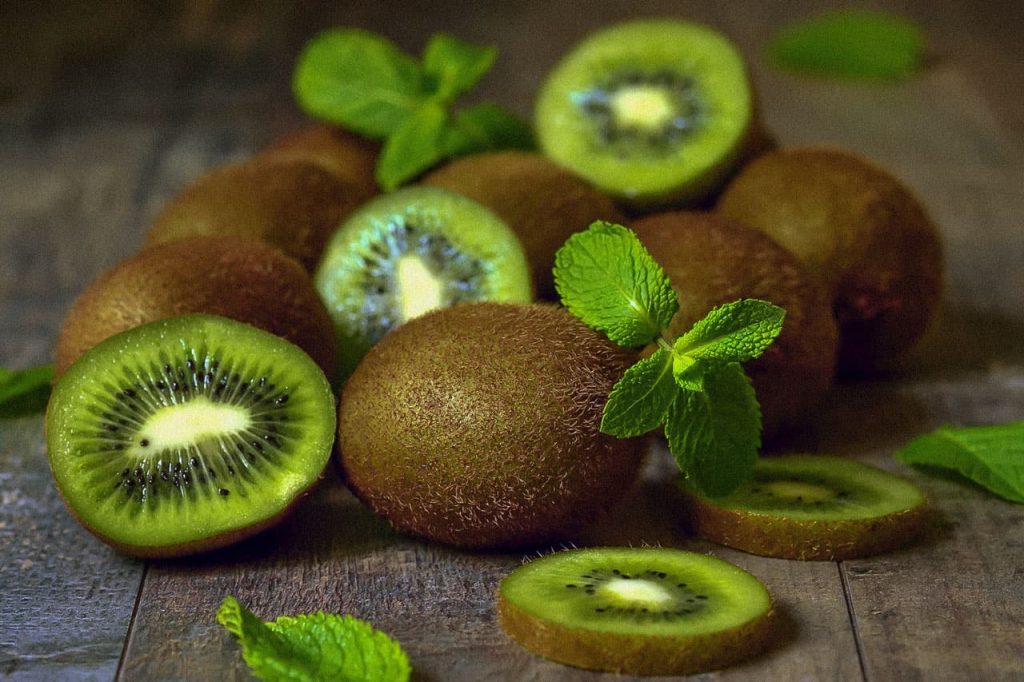
Side effects of kiwi fruit for pregnant
Does kiwi fruit have any side effects for a pregnant lady? Even though it’s not common, it’s possible to get allergic to kiwifruit or to eat too much of it, leading to unfavorable impacts on one’s health. Both of these scenarios are highly unlikely side effects of kiwi fruit on pregnant. If you are pregnant and wish to consume kiwi, you should speak with your healthcare provider before incorporating kiwi into your diet. Eating kiwi while pregnant may affect the developing baby. It is possible for certain individuals to acquire an allergy to kiwi, either as a result of eating kiwi fruit or as a result of being allergic to pollen. The following are some of the potential adverse consequences of kiwi fruit for pregnant women: An excessive consumption of kiwis can lead to symptoms such as nausea, vomiting, and diarrhea in some people. Individuals who are sensitive to latex are more likely to have an allergic reaction to kiwis. In these kinds of situations, it is best to avoid eating kiwi as much as possible. Damage to the Pancreas Kiwi is a high source of vitamin C, vitamin E, serotonin, and potassium, all of which help protect against damage to the pancreas. When consumed in excessive quantities, it has the potential to cause changes in the triglyceride levels found in the blood and, over the course of time, can be detrimental to the pancreas. Because kiwi fruit has anti-fungal qualities, eating it alongside anti-fungal medication may have an additional impact. Before consuming kiwi fruit, you should discuss the possibility of doing so with your primary care physician if you are currently taking any of the following medications: anticoagulants, heparin, aspirin, non-steroidal anti-inflammatory drugs, or anti-platelet therapies.
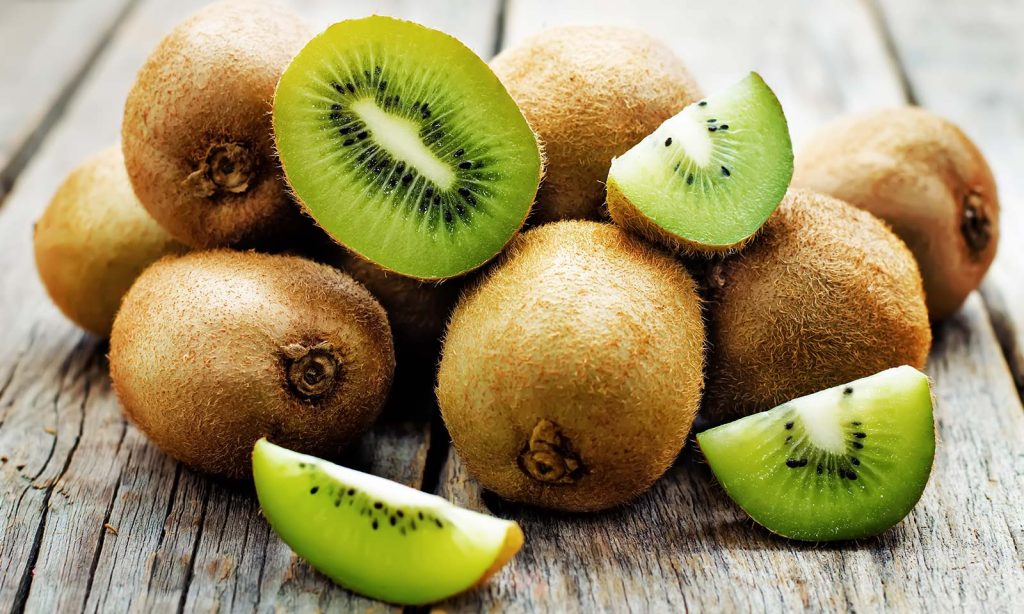
Kiwi fruit in pregnancy first trimester
Kiwi fruit is an excellent source of folate especially in the first trimester of pregnancy time, with the average kiwi containing roughly 17 micrograms (mcg) of this essential nutrient, and it is highly recommended that you include it in your diet. Folate, or its synthetic version, folic acid, is essential for preventing neural tube abnormalities (NTDs) in your unborn child. However, researchers aren’t quite clear on how this preventative measure actually works. Because NTDs can appear as early as 4 to 6 weeks after your previous period, it is critical to begin taking a supplement one month before attempting to conceive in order to reduce your risk of contracting one of these conditions. Folic acid supplements of 400 micrograms per day are what’s recommended by the Centers for Disease Control and Prevention in the United States but eating a kiwi or two per day can be just as beneficial. One kiwi contains an astounding 64 milligrams (mg) of this beneficial vitamin. Trusted Source Because it facilitates the body’s uptake of iron, vitamin C is beneficial to mothers. In order to avoid developing anemia during or after pregnancy, it is critical to have adequate iron absorption. It is beneficial for both you and the baby if you make sure your iron levels are high. The production of neurotransmitters, which are essential for proper brain function, is facilitated by iron. It’s not just about teeth and bones in this case. Calcium is essential for the growth of your baby’s muscles as well as their heart, so make sure you give them plenty. Because the average kiwi provides 23.5 mg of calcium, you might consider slicing them up and adding them to your salads, especially if you have lactose intolerance and are seeking calcium sources other than dairy products.
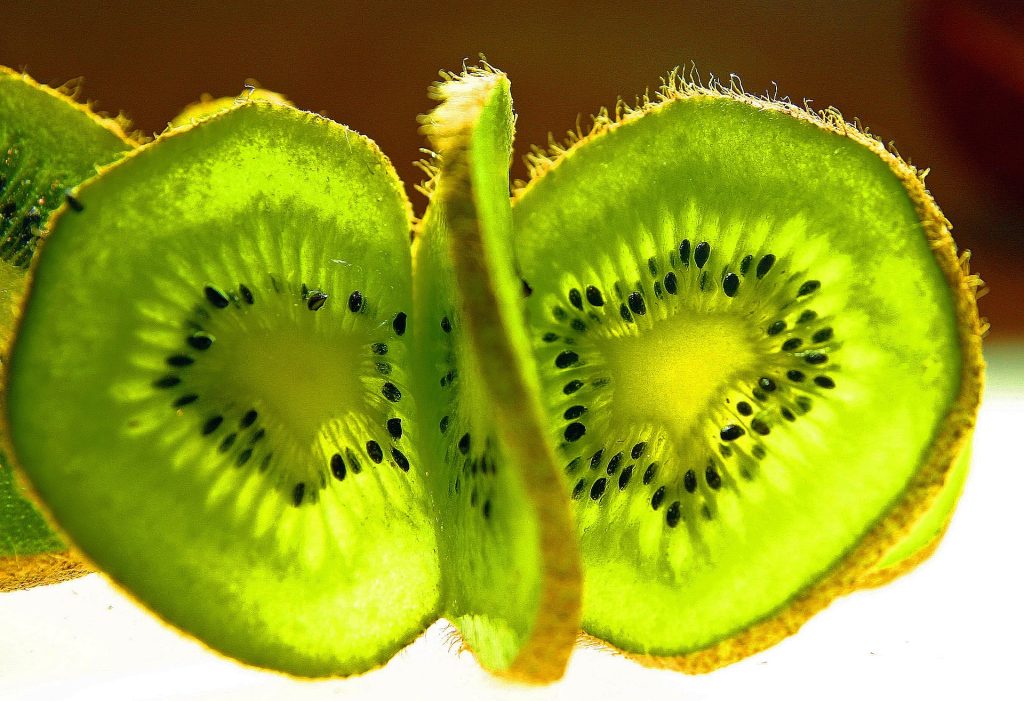
Kiwi in pregnancy nhs
It has been written in nhs website about consuming kiwi fruit during pregnancy time. A healthy diet is an important component of a healthy lifestyle at any time, but it is of the utmost importance if you are pregnant or if you are planning to become pregnant. Keeping a healthy diet while pregnant is beneficial to the growth and development of both you and your baby. It is not necessary for you to follow a particular diet while you are pregnant; however, it is essential that you consume a wide variety of foods on a daily basis in order to obtain the appropriate proportion of nutrients that are necessary for both you and your unborn child. It is preferable to obtain vitamins and minerals from the food that you eat; however, if you are pregnant, you are required to take a folic acid supplement in addition to eating a healthy diet. This is done to ensure that you get everything that you require. Consume a lot of fruit and vegetables since these foods are rich in fiber, which is beneficial to digestion and can help prevent constipation. Fruits and vegetables also supply essential vitamins and minerals. Consume at least five servings of different fruits and vegetables every day, whether they are fresh, frozen, canned, dried, or juiced. These can be consumed in any form, including fresh, frozen, canned, or juiced. Always be sure to thoroughly wash all freshly harvested fruits and vegetables. Altering the proportions of the items you eat rather than eliminating all of your favorites is a more effective way to improve your diet and overall health than completely cutting out certain foods. You can achieve nutritional harmony by following the recommendations in the Eatwell Guide. It outlines the percentage of your total caloric intake that should come from each food group so that you can maintain a healthy and well-balanced diet.

How many kiwis should I eat a day while pregnant
If you are asking this question yourself in a day how many of kiwis should I eat while I am pregnant, do not stop reading this paragraph. In a perfect world, an expecting mother would consume one cup of chopped fruits per day, or one piece of fruit if the fruit was on the large side. You should limit your consumption of kiwi fruit to no more than two or three per day in order to have a healthy and risk-free pregnancy. Before introducing kiwis into your diet on a daily basis, you should check with your medical professional if you have gastritis, allergies, or any other digestive disorders. Those who have a history of acid reflux, eczema, or other skin conditions may find that eating kiwi causes their symptoms to worsen. Kiwi also has the potential to irritate the mouth and tongue. Keeping a close eye on what you eat is absolutely necessary when you’re pregnant because your body is more susceptible to illness at this time. Kiwis have the potential to supply the body with a number of essential nutrients, one of which is iron, which is essential for the development of the fetus. On the other hand, like with everything else, eating too much of them is not a good idea because excess of anything may be harmful. It’s possible that eating more fruits and vegetables will require you to make some intentional adjustments to your diet, but doing so doesn’t have to be particularly challenging or hard for you to reap the benefits of doing so. You may find that adhering to these straightforward recommendations brings you closer to achieving your everyday objectives.
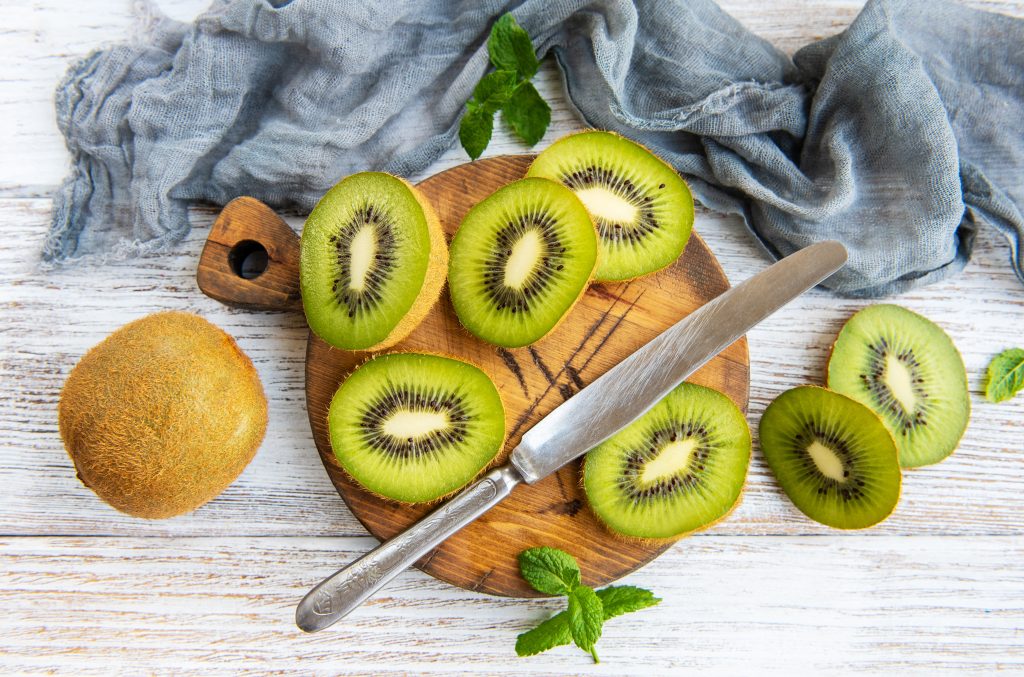
How to eat kiwi fruit in pregnancy
To get aware of the answer to this question that how can you eat the kiwi fruit in your pregnancy time, you have to know that the fruit has a flavor reminiscent of the tropics, is free of cholesterol, and contains a little number of carbohydrates and fats. It has vitamin C, vitamin K, vitamin E, folate, potassium, dietary fiber, choline, copper, magnesium, and phosphorus among its many other nutrients. According to the United States Department of Agriculture (USDA), one fruit that is approximately 69 grams in size and contains 64 milligrams of vitamin C, 17.2 micrograms of folate, and 27.8 micrograms of vitamin K contains 42.1 calories, 0.3 grams of fat, 10 grams of carbohydrates, and 2 grams of dietary fiber. The pulp of the kiwifruit contains carotenoids such as provitamin A, beta carotene, lutein, and zeaxanthin. The seeds of the kiwifruit contain alpha-linolenic acid and omega-3 fatty acids. Kiwi is safe to consume during pregnancy due to the high levels of vitamins C and K that it contains. In addition to this, it has a high concentration of folate, a nutrient that plays an important role in the maturation of both the brain and the cognitive capacities of an unborn child, and which has been found to have a beneficial impact on the process of fetal development. If you eat the fruit prior to being pregnant as well as while you are pregnant, it could help avoid neural tube problems in your child. Fruits and vegetables are essential for pregnant women, so you’ll want to eat more of them. Pregnant women shouldn’t worry about kiwi because it’s healthy and packed with nutrients they need. However, kiwis offer a wide range of health benefits, including aiding in constipation and being a good source of vitamin C. If you’re thinking about eating kiwis while pregnant, I’ll show you how to do it safely and healthfully, as well as explain you everything about the different varieties and their benefits.
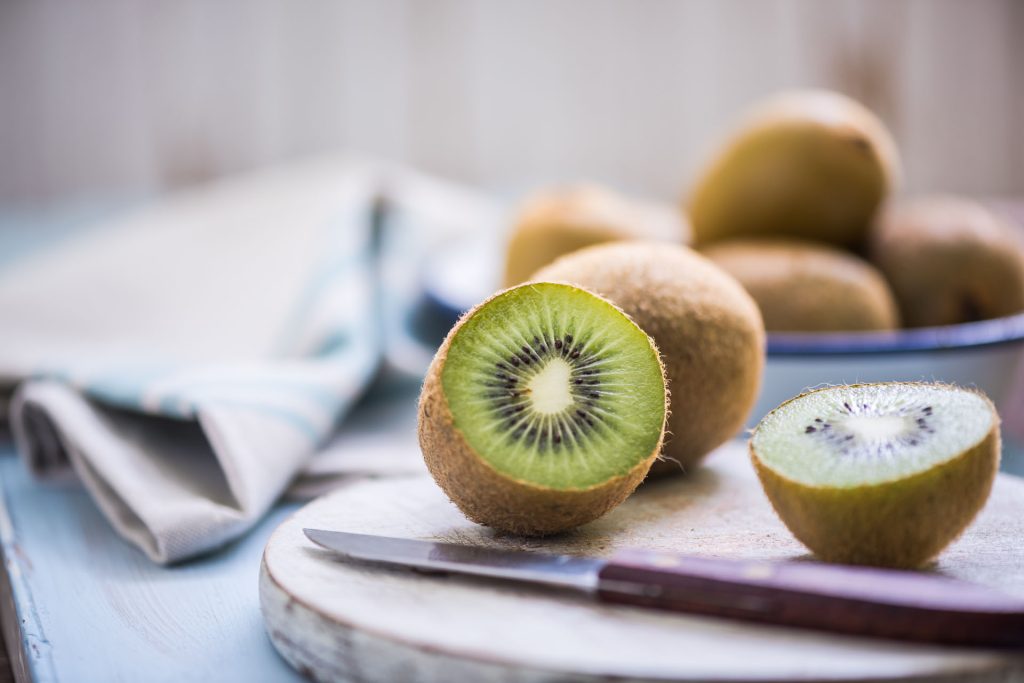
Fruits to avoid in pregnancy
It is considered to avoid consuming everything in your pregnancy because you and your baby’s health will be influenced by the fruits and foods you eat while you are pregnant. Your pregnancy will be healthier and your child’s development will be better if you eat right. Eat a diet rich in fruits, vegetables, and whole grains to ensure that you meet your dietary needs. Certain fruits and vegetables should not be consumed during pregnancy because of the danger they pose to the unborn child. It is important to remember that certain fruits are not safe for you to consume while you’re pregnant. Pregnant women should eat a wide variety of fruits, but there are a few that may not be beneficial to their health, especially while the baby is in the midst of an explosive development spurt. The health of a fetus can be adversely affected by some fruits, while a miscarriage might be precipitated by yet others. Raw or semi-ripe papaya contains latex, which can cause premature labor. Ripe papaya contains vitamins and iron. In moderation, papaya is harmless, but pregnant women should avoid unripe fruit. During the third and final trimester of pregnancy, it is not advisable to consume grapes. They are known to cause excessive heat production in the body, which is unhealthy for the mother as well as the child. During pregnancy, you should try to limit your intake of grapes to the recommended amount. This will help you avoid any potential complications.
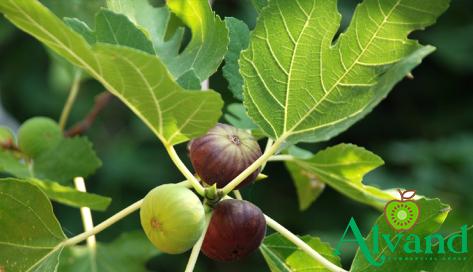
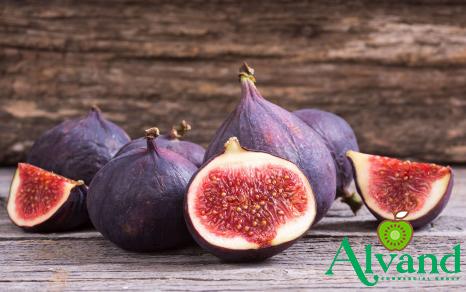
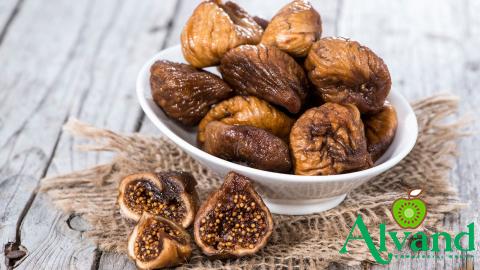
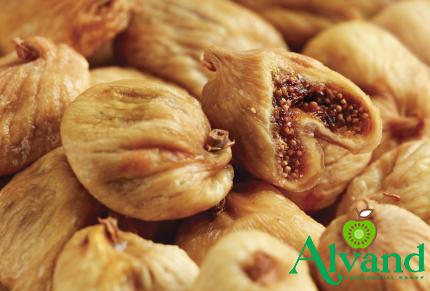
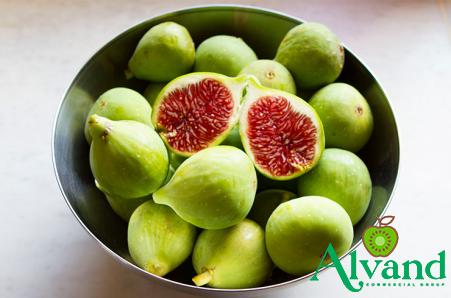
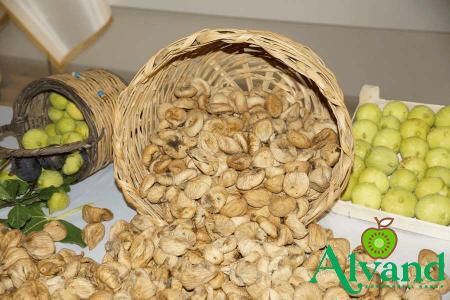
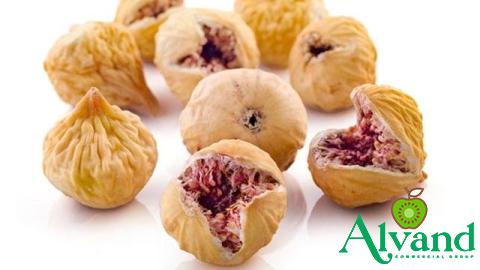
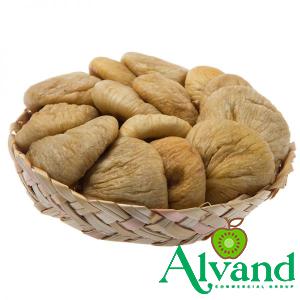
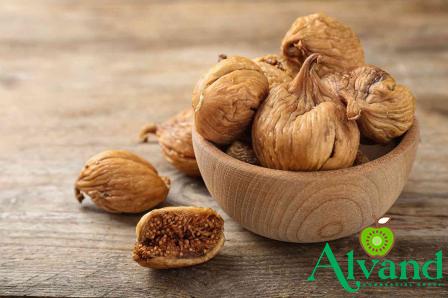
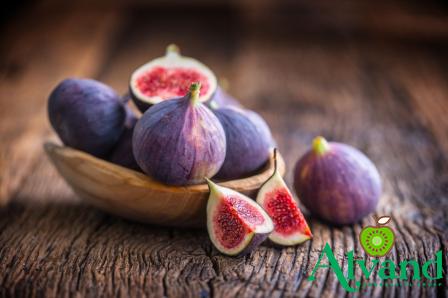
Your comment submitted.